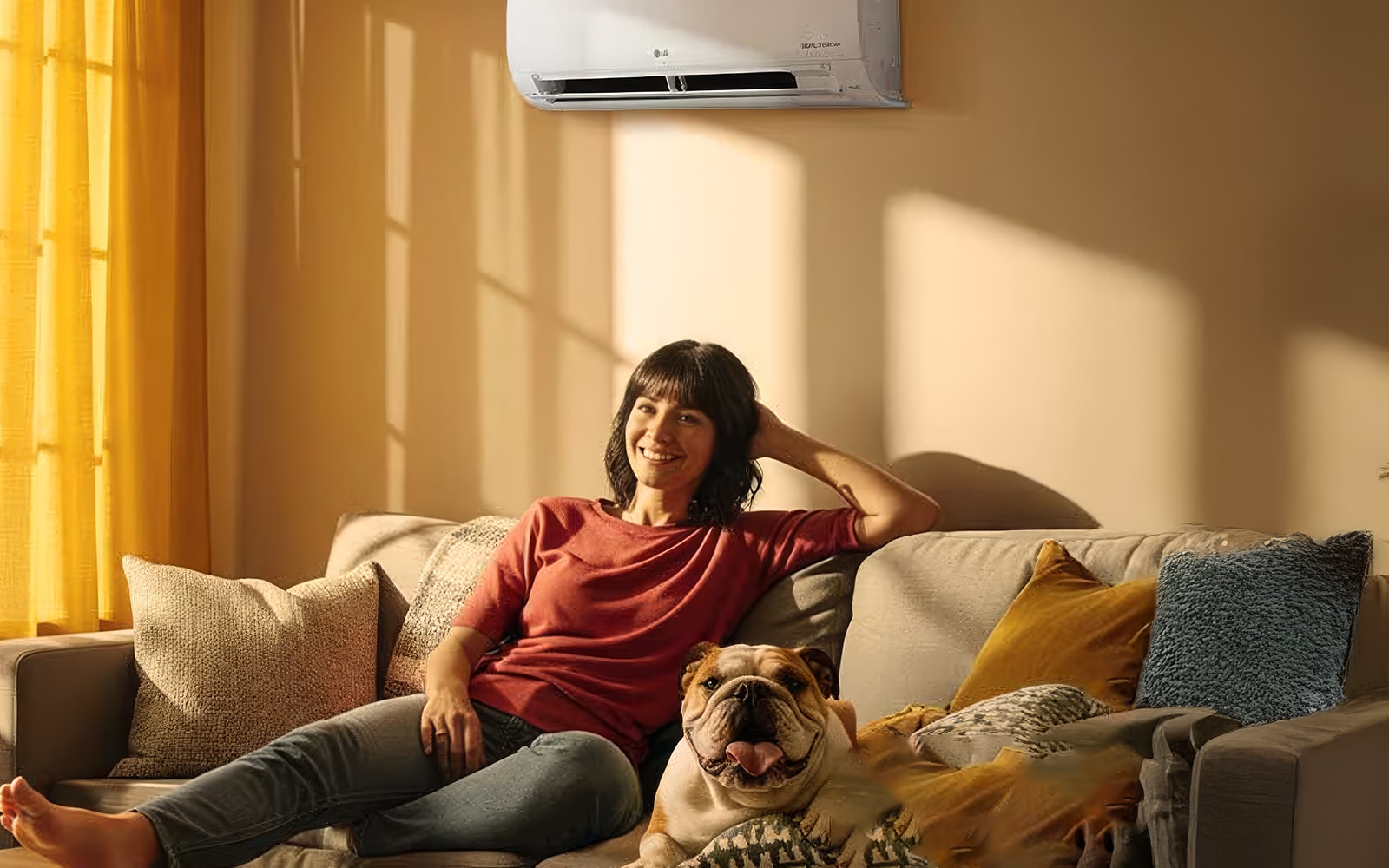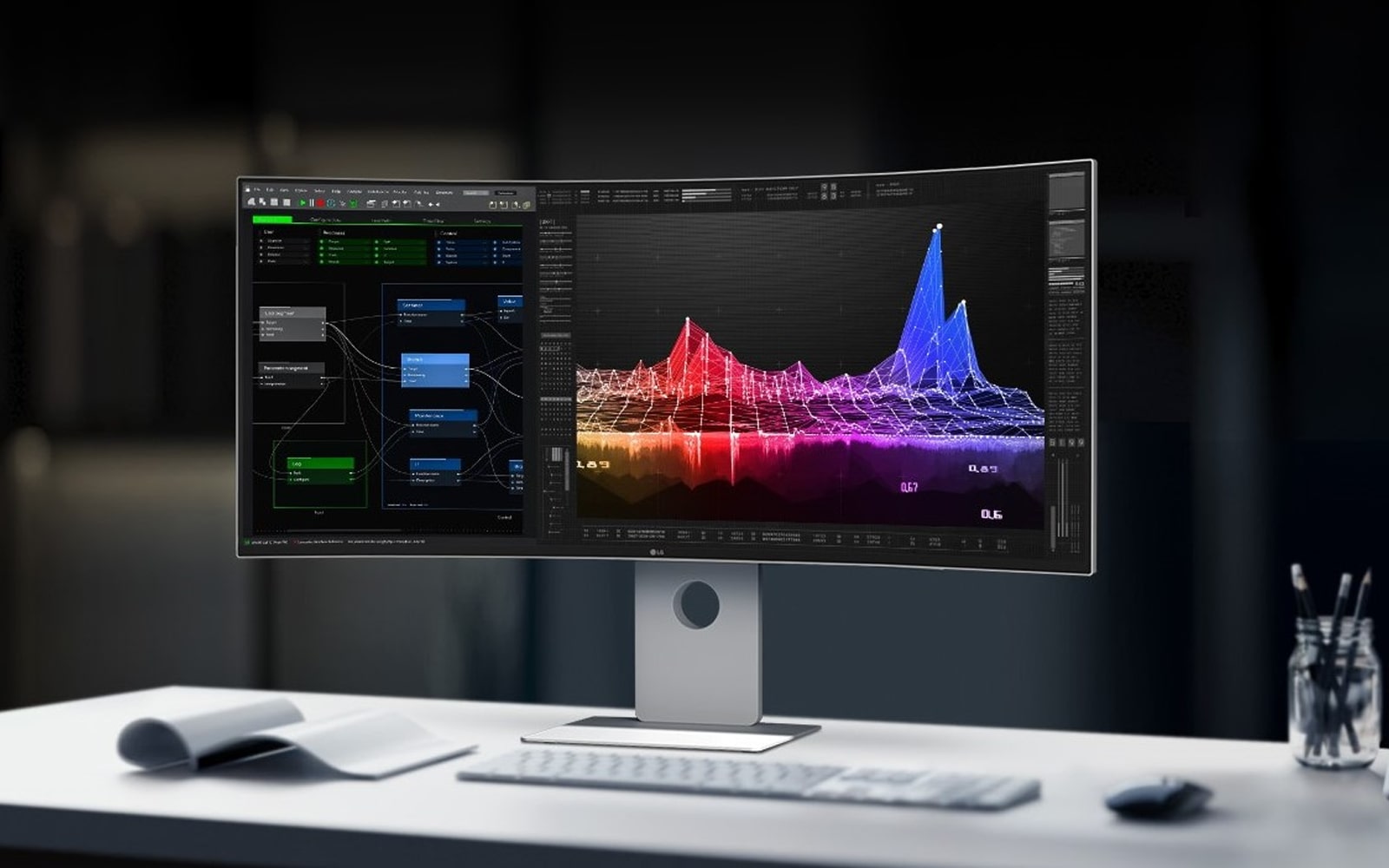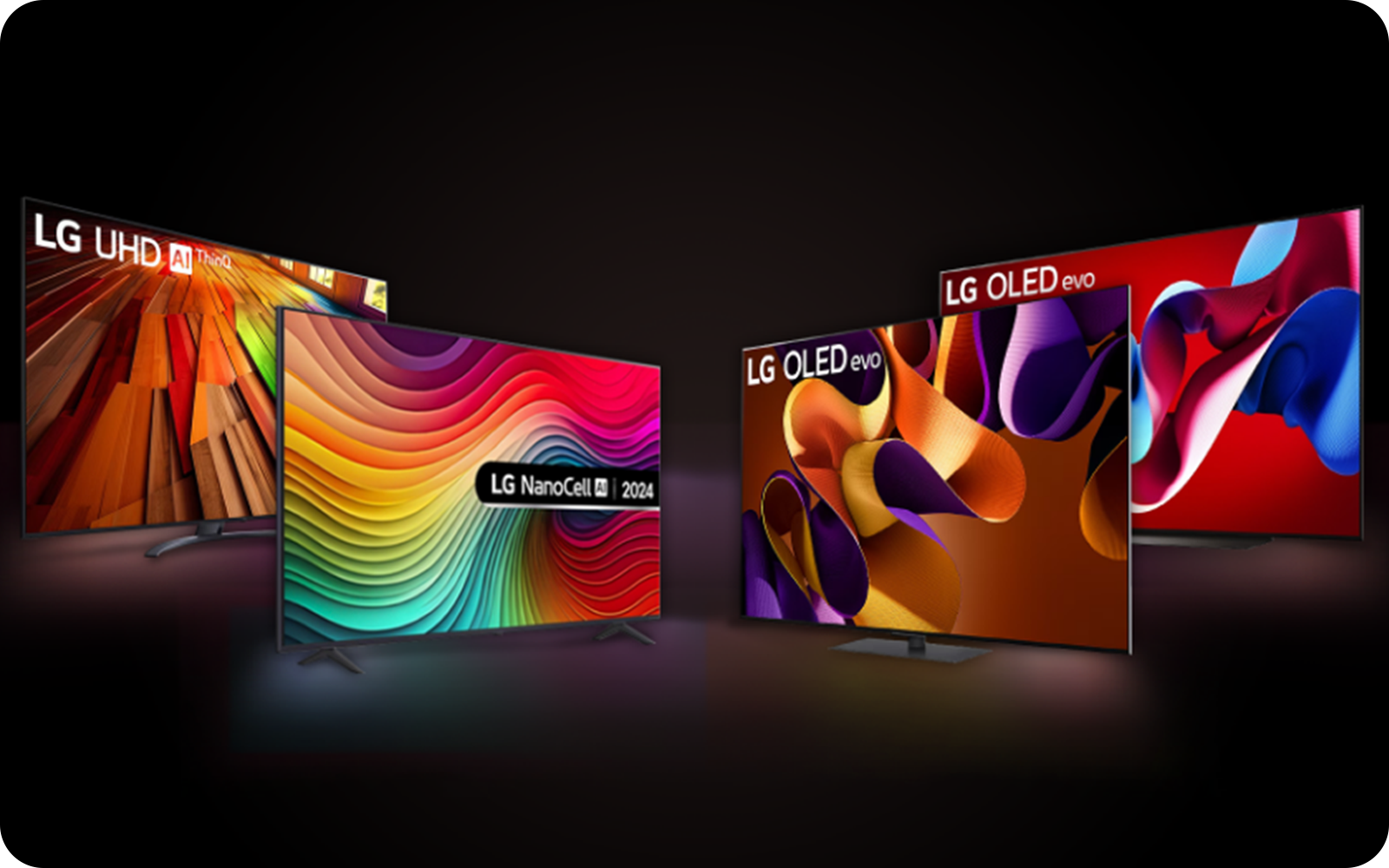We use cookies, including cookies from third parties, to enhance your user experience and the effectiveness of our marketing activities. These cookies are performance, analytics and advertising cookies, please see our Privacy and Cookie policy for further information. If you agree to all of our cookies select “Accept all” or select “Cookie Settings” to see which cookies we use and choose which ones you would like to accept.
LG LAB
Home air conditioning: everything you need to know
- Understanding how air conditioners work can help you find your perfect fit
- Standing, portable, central or split-system units offer different advantages and disadvantages
- Your home’s layout, size and location can determine which AC unit is right for you
- Look for certain features when you’re shopping for a residential air conditioner
- Air conditioning comes with a range of health benefits
Need relief from sweltering summer days? An air conditioner is the answer! In this guide, we’ll take you through what to look for in a home air conditioning system. By comparing the different units available and understanding how they function, let’s discuss which options are best for your living space.
How does home air conditioning work?
Before you can choose the right residential air conditioning system for your home, it’s helpful to know how the different systems work.
Contrary to what you might think, home air conditioning doesn’t work by pushing cold air into your home. Instead, it works rather like a fridge, pumping out the warm air and recirculating air that has passed through chiller pipes. As the air is condensed into a liquid, the heat is removed, leaving cool air in its place.
What are the most popular air conditioners?
From split systems to window units, there are several options to choose from.
Portable air conditioners: standing vs. window units
Floor standing units are the simplest home air conditioners on the market. You can put a portable air conditioner into any room you need to cool down and plug it into the nearest socket. You’ll need to put it beside an open window where the duct can pass through, and you may also need a container to catch the condensation.
As the name suggests, window air conditioners fit into an open window and cool the room they’re in. The condensation conveniently drips out of the window onto the ground outside. But for this type of small air conditioner, you would need one for each room.
Installed air conditioners: split vs. central systems
Split system air conditioners have two units: generally an evaporator inside your home and a condenser outside. You can also get multiple indoor units that work with a single outdoor unit, but you won’t be able to control them individually. However, there are multi-split AC units that do allow individual climate control.
Central air conditioning systems have both parts of the system in a single unit, which is usually located on the ground outside your home. The cool air is pumped back into your home through a duct system in each room.
Which air conditioning unit is best for your home?
The type of air conditioning system that’s right for your home depends on its layout, size and the climate you live in.
Small air conditioners work well for single-family homes
If you only need to cool your home occasionally, or only need to cool certain rooms, a portable or window AC unit is probably going to work best for you. Compact air conditioners are ideal for home offices, studios and bedrooms. But those who live in hot climates may find that a split air conditioning system, which cools throughout the entire home, is a worthwhile investment.
Choose the right air conditioner for your home renovation
If you’re renovating an older property, you may find that it’s not suitable for fully installed air conditioning systems, which need ducting. If so, your best bet is either a portable or window air conditioner in the rooms you most need to cool.
Streamlined air conditioning keeps new homes cool
Building a new home provides a unique opportunity to accommodate the ducting necessary for fully installed central air conditioning systems that cool the whole house. Multi-split air conditioning systems work well for large, open-plan rooms where you need more than one unit but don’t need to control them individually.
Other domestic air conditioning features
Smart connectivity saves money and energy
Connecting your air conditioning unit to your smartphone or voice-enabled smart speaker via Wi-Fi gives you more control over your home environment.1 By allowing you to control your air conditioning more precisely, it can also save energy and money.
2-in-1 systems provide year-round comfort
Did you know that some air conditioning units can heat your home as well as cool it? These use heat pump technology, so look out for this feature if you want to stay warm in the winter as well as cool in the summer.
Sleep soundly with noise control
Finally, nobody wants to be disturbed by loud air conditioning units. Noise control is another key feature to look out for if you value peace and quiet.2
What are the health benefits of home air conditioning?
As if helping you get through a hot summer wasn’t enough, home air conditioning comes with some health benefits.
By keeping you nice and cool, it reduces the chance of getting heat stroke and helps you sleep better. Plus, it can improve the quality of the air you breathe by reducing allergens such as dust and pollen and even removing bacteria.3
Air conditioners also act as a dehumidifier by regulating the moisture in the air. Even better, it helps lower your risk of dehydration by reducing the amount you sweat!
Home air conditioning makes a huge difference on a hot day by keeping you comfortable and healthy. You now know how to choose the right one!
Life's Good!
1 Smart features and voice assistant products may vary by country and model. Check with your local retailer or LG for service availability.
2 According to LG internal tests, LG DUAL Inverter air conditioner is less than 19dBA. (Model - V10API)
3 Safe Plus Pre-Filter contains antibacterial properties(Zinc oxide).






